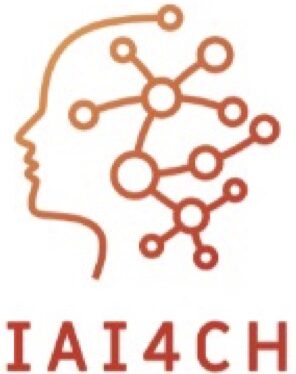3rd Italian Workshop on Artificial Intelligence for Cultural Heritage (IAICH24)
Co-located with the 23rd International Conference of the Italian Association for Artificial Intelligence (AIxIA 2024).
https://aixia2024.events.unibz.it/
November 25 – November 28, 2024, Bolzano (Italy)
Workshop website: https://ai4ch.di.unito.it/
Abstract
In the last two decades, the advent of digital technologies on large scale has paved the way to the application of Artificial Intelligence technologies to the study, preservation and accessibility of cultural heritage. On the one side, the availability of digital data can push forward the study of heritage, improving our understanding of the past, and our capability to preserve and transmit it to new generations; on the other side, it can reduce the gap between heritage and its audiences, leading heritage to the role of engine of cultural and societal progress envisaged by the FARO Convention since 2005.
In cultural heritage, the development of applications usually requires the involvement of an interdisciplinary team, and is often constrained to standard formats and frameworks elaborated by national and international institutions. This multidisciplinary approach represents, at the same time, a challenge and an opportunity for Artificial intelligence, since it calls for the elaboration and formalization of original models and the refinement of existing tools and technologies, and the creation of novel ones.
Topics of Interest
General areas and topics of interests include (but are not limited to):
- Intelligent Management systems in CH
- Cultural landscapes and cultural tourism
- Acquisition, conservation and restoration
- Visualization Techniques and Extended Reality
- Multimedia and Multilingual Data Management
- Gamification and Storytelling in CH
- Museum and Exhibition Applications
- Libraries and Archives in CH
- Preservation and long term accessibility
- Tools for Education, Documentation and Training
- Learning and Reasoning on CH data
- DRM and Legal Issues
- Societal, Professional and Ethical Guidelines
- Intangible Heritage Representation and Processing
- Cultural Heritage Ontologies and Vocabularies
- Linked Data and Knowledge Graphs for Cultural Heritage
- Language Technologies for Cultural heritage
- Semantic Social Networks in Heritage data
- Document processing
- Accessibility and inclusion in CH
- Mining and indexing of CH contents
- Workflow management in Cultural Heritage
Submission
IAICH accepts the following types of submissions:
- Full papers (8-10 pages)
- Short papers (6 pages)
Suitable for presenting work in progress, software prototypes or extended abstracts of doctoral theses - Project papers (6 pages) excluding references
General overviews of research projects
Authors should submit their papers as single-column. The templates are available here (we strongly recommend the usage of LaTeX for the camera-ready papers to minimize the extent of reformatting):
- Overleaf template in LaTeX format:
https://www.overleaf.com/latex/templates/template-for-submissions-to-ceur-workshop-proceedings-ceur-ws-dot-org/wqyfdgftmcfw - Overleaf offline template (LaTeX format):
http://ceur-ws.org/Vol-XXX/CEURART.zip - Word template:
http://ceur-ws.org/Vol-XXX/CEUR-Template-1col.docx - ODT template:
http://ceur-ws.org/Vol-XXX/CEUR-Template-1col.odt
Authors should clearly indicate the topic/s and the type of the contribution.
Submissions should be single blinded, i.e. authors names should be included in the submissions.
All papers will be peer-reviewed by at least two members of the programme committee and evaluated on the basis of relevance, originality, significance, soundness, and clarity. Papers that exceed the page limits or formatting guidelines will be returned without review. Final copies of papers for inclusion to the conference proceedings will be published on CEUR in the AI*IA series (Scopus indexed). At least one author must attend the conference to present the paper.
Organizational details such as: thematic panels, demo sessions, invited talks
- The workshop will include an invited talk and a panel discussion
Special track: Data for cultural heritage
Data track Chair: Bernardino Tommaso Sassoli De Bianchi
We are pleased to announce the Datasets for Cultural Heritage special track. The special track acknowledges the centrality of data to the progress of AI as applied to the fields of cultural heritage and aspires to foster positive contributions and discussions to this all-important aspect of the field. Inasmuch as data acts as a de facto interface between CH subject-matter experts such as archeologists, art historians, or museum curators on the one hand and AI practitioners on the other, we need to ensure the availability of high-quality, accessible datasets. A data-centric approach to CH encounters a pronounced set of specific challenges, including: digitization lags in most areas of CH, most institutions still need to be conversant with data, no common standardized metadata schemas, and so on. Perhaps more importantly, data scientists, ML practitioners, and computer scientists often fail to engage thoroughly with subject matter experts in an integrated, interdisciplinary way. This track aims to address and work towards solving and mitigating such issues and challenges, explicitly fostering interdisciplinary collaboration and dialogue. Below are examples of submissions that we envision:
- New datasets
- Curated datasets based on previously available data (e.g., a collection of landscapes from artworks)
- CH-specific classification, labeling, and metadata schemas aimed at facilitating interdisciplinary research
- Methodological discussions and frameworks that address the specific challenges insisting on data collection and curation for CH
- Audits and discussions of existing datasets, analyzing issues, and putting forth proposals for their improvement
All submissions should ensure compliance with current ethical and legal standards and frameworks.
Data papers should comply with the following requirements:
- 6-8 pages
- Motivations for the data collection
- Description of format and schema
- Clear statement about the availability of the dataset
- Discussion of the ethical issues, if any
- DRM schema adopted
- Contributors and responsibility
- FAIRness discussion

